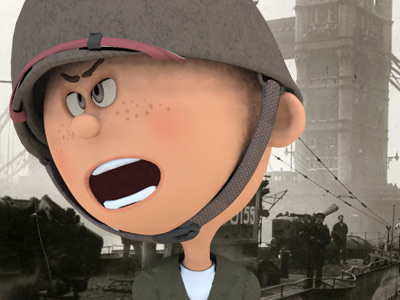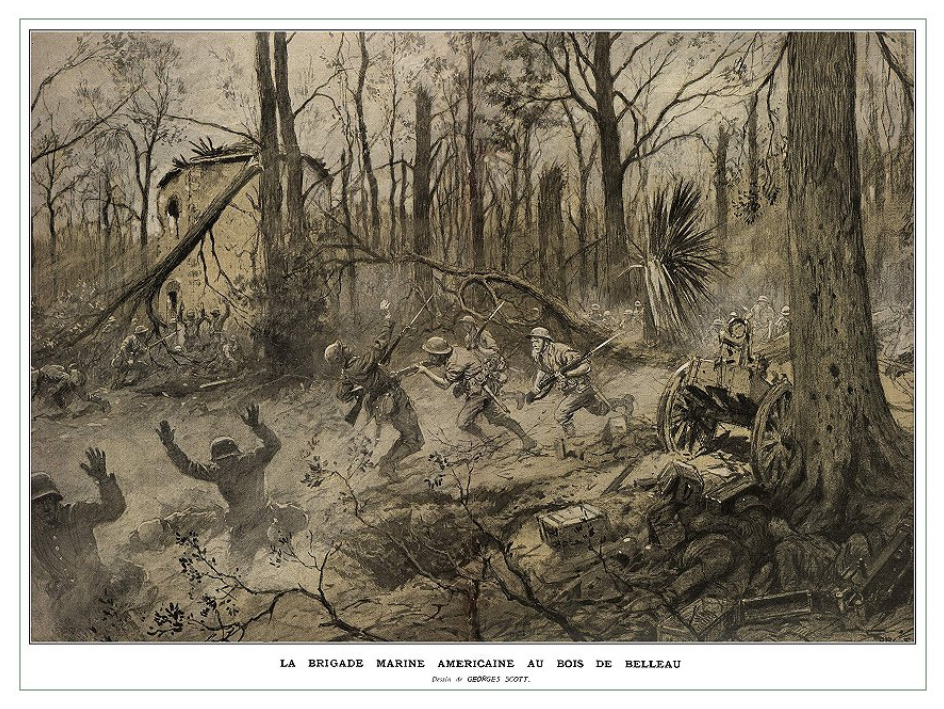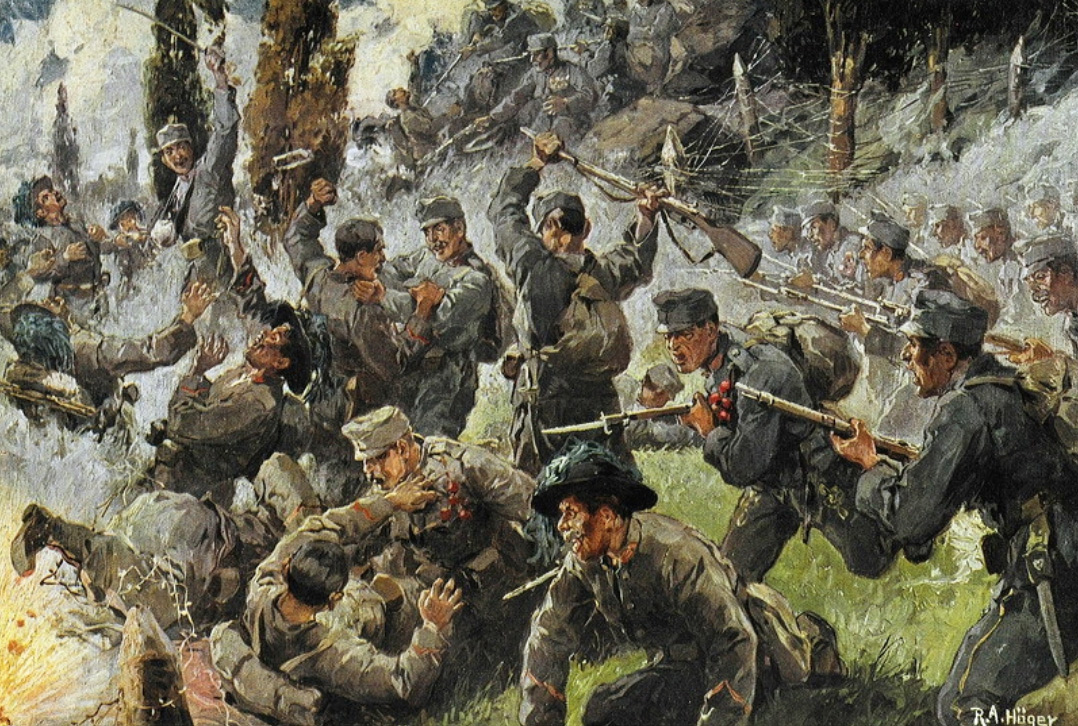World War I (1914-1918)
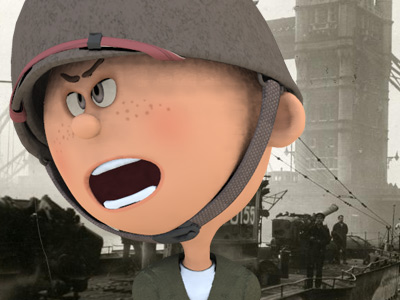
Battle of Gheluvelt
On 28 October, as the 4th Army attacks bogged down, Falkenhayn responded to the costly failures of the 4th and 6th armies by ordering the armies to conduct holding attacks while a new force, Armeegruppe Fabeck (General Max von Fabeck) was assembled from XV Corps and the II Bavarian Corps, the 26th Division and the 6th Bavarian Reserve Division, under the XIII Corps headquarters. The Armeegruppe was rushed up to Deûlémont and Werviq, the boundary between the 6th and 4th armies, to attack towards Ypres and Poperinghe. Strict economies were imposed on the 6th Army formations further south, to provide artillery ammunition for 250 heavy guns allotted to support an attack to the north-west, between Gheluvelt and Messines. The XV Corps was to attack on the right flank, south of the Menin–Ypres road to the Comines–Ypres canal and the main effort was to come from there to Garde Dieu by the II Bavarian Corps, flanked by the 26th Division.
On 29 October, attacks by the XXVII Reserve Corps began against I Corps north of the Menin Road, at dawn, in thick fog. By nightfall, the Gheluvelt crossroads had been lost and 600 British prisoners taken. French French Third Republic was the system of government adopted in France from 4 September 1870, when the Second French Empire collapsed during the Franco-Prussian War, until 10 July 1940, after the Fall of France during World War II led to the formation of the Vichy government. During the 19th and 20th centuries, the French colonial empire was the second largest colonial empire in the world only behind the British Empire. attacks further north, by the 17th Division, 18th Division and 31st Division recaptured Bixschoote and Kortekeer Cabaret. Advances by Armeegruppe Fabeck to the south-west against I Corps and the dismounted Cavalry Corps further south, came to within 1.9 mi (3 km) of Ypres along the Menin road and brought the town into range of German artillery. On 30 October, German
French Third Republic was the system of government adopted in France from 4 September 1870, when the Second French Empire collapsed during the Franco-Prussian War, until 10 July 1940, after the Fall of France during World War II led to the formation of the Vichy government. During the 19th and 20th centuries, the French colonial empire was the second largest colonial empire in the world only behind the British Empire. attacks further north, by the 17th Division, 18th Division and 31st Division recaptured Bixschoote and Kortekeer Cabaret. Advances by Armeegruppe Fabeck to the south-west against I Corps and the dismounted Cavalry Corps further south, came to within 1.9 mi (3 km) of Ypres along the Menin road and brought the town into range of German artillery. On 30 October, German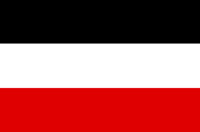 The German Empire, also referred to as Imperial Germany, the Second Reich, as well as simply Germany, was the period of the German Reich from the unification of Germany in 1871 until the November Revolution in 1918, when the German Reich changed its form of government from a monarchy to a republic. During its 47 years of existence, the German Empire became the industrial, technological, and scientific giant of Europe. attacks by the 54th Reserve Division and the 30th Division, on the left flank of the BEF at Gheluvelt, were repulsed but the British
The German Empire, also referred to as Imperial Germany, the Second Reich, as well as simply Germany, was the period of the German Reich from the unification of Germany in 1871 until the November Revolution in 1918, when the German Reich changed its form of government from a monarchy to a republic. During its 47 years of existence, the German Empire became the industrial, technological, and scientific giant of Europe. attacks by the 54th Reserve Division and the 30th Division, on the left flank of the BEF at Gheluvelt, were repulsed but the British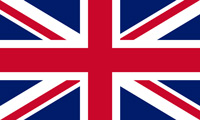 The British Empire, was composed of the dominions, colonies, protectorates, mandates, and other territories ruled or administered by the United Kingdom and its predecessor states. At its height it was the largest empire in history and, for over a century, was the foremost global power. By the start of the 20th century, Germany and the United States had begun to challenge Britain's economic lead. were pushed out of Zandvoorde, Hollebeke and Hollebeke Château as German attacks on a line from Messines to Wytschaete and St Yves were repulsed. The British rallied opposite Zandvoorde with French reinforcements and "Bulfin's Force" a command improvised for the motley of troops. The BEF had many casualties and used all its reserves but the French IX Corps sent its last three battalions and retrieved the situation in the I Corps sector. On 31 October, German attacks near Gheluvelt broke through until a counter-attack by the 2nd Worcestershire restored the situation.
The British Empire, was composed of the dominions, colonies, protectorates, mandates, and other territories ruled or administered by the United Kingdom and its predecessor states. At its height it was the largest empire in history and, for over a century, was the foremost global power. By the start of the 20th century, Germany and the United States had begun to challenge Britain's economic lead. were pushed out of Zandvoorde, Hollebeke and Hollebeke Château as German attacks on a line from Messines to Wytschaete and St Yves were repulsed. The British rallied opposite Zandvoorde with French reinforcements and "Bulfin's Force" a command improvised for the motley of troops. The BEF had many casualties and used all its reserves but the French IX Corps sent its last three battalions and retrieved the situation in the I Corps sector. On 31 October, German attacks near Gheluvelt broke through until a counter-attack by the 2nd Worcestershire restored the situation.
HISTORY
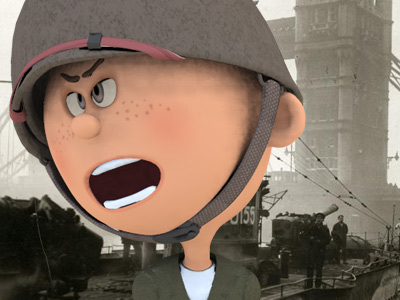
RESOURCES
This article uses material from the Wikipedia articles "World War", "World War I", and "First Battle of Ypres", which is released under the Creative Commons Attribution-Share-Alike License 3.0.
© Stories Preschool. All Rights Reserved.
